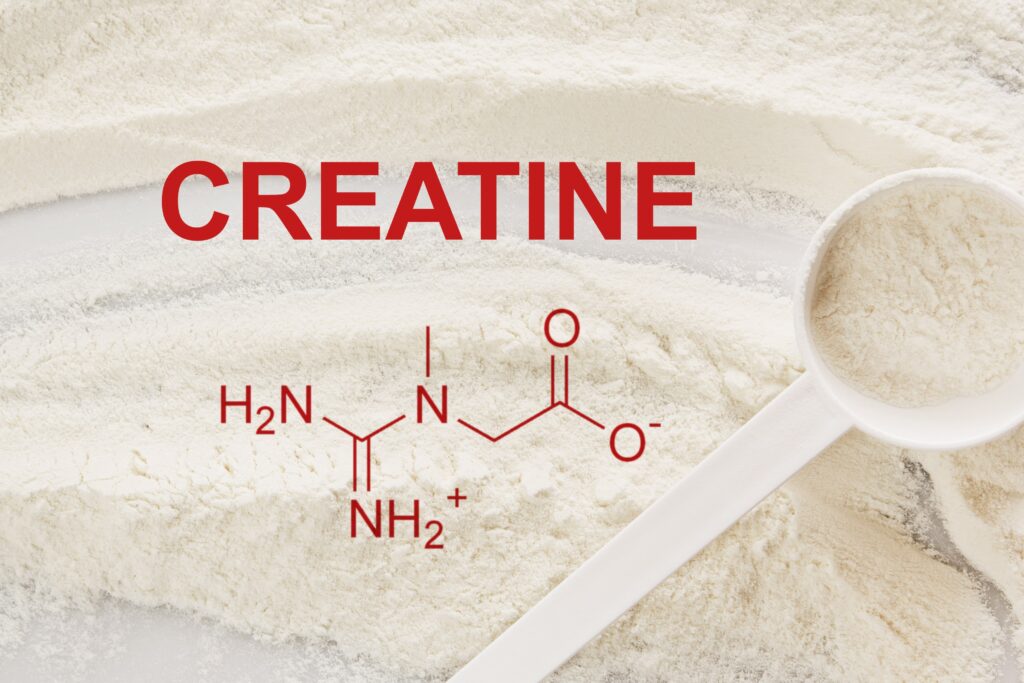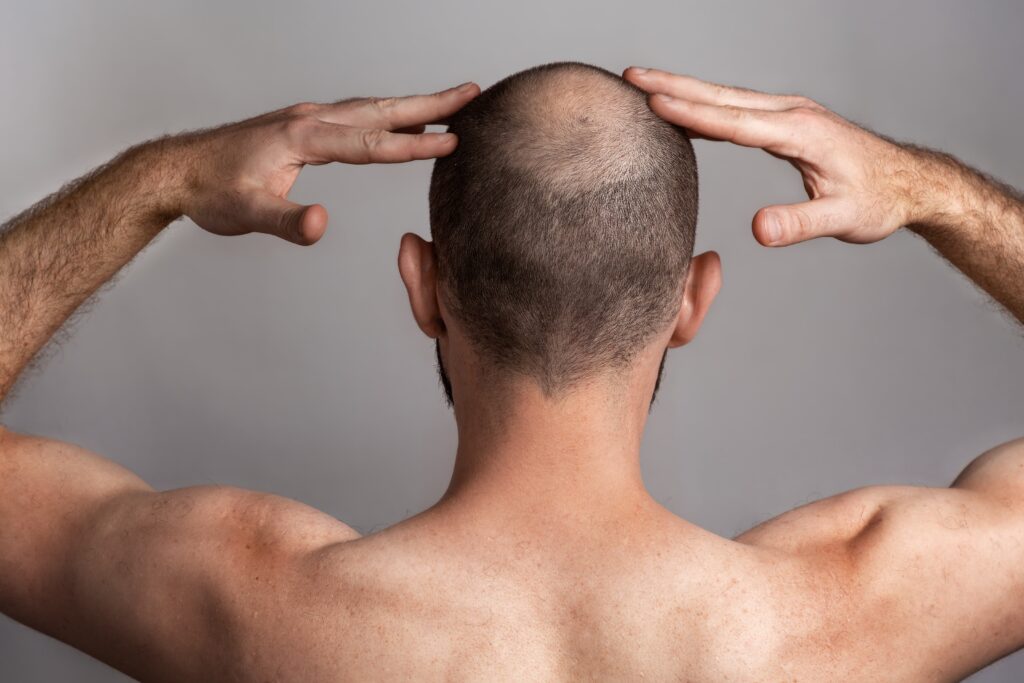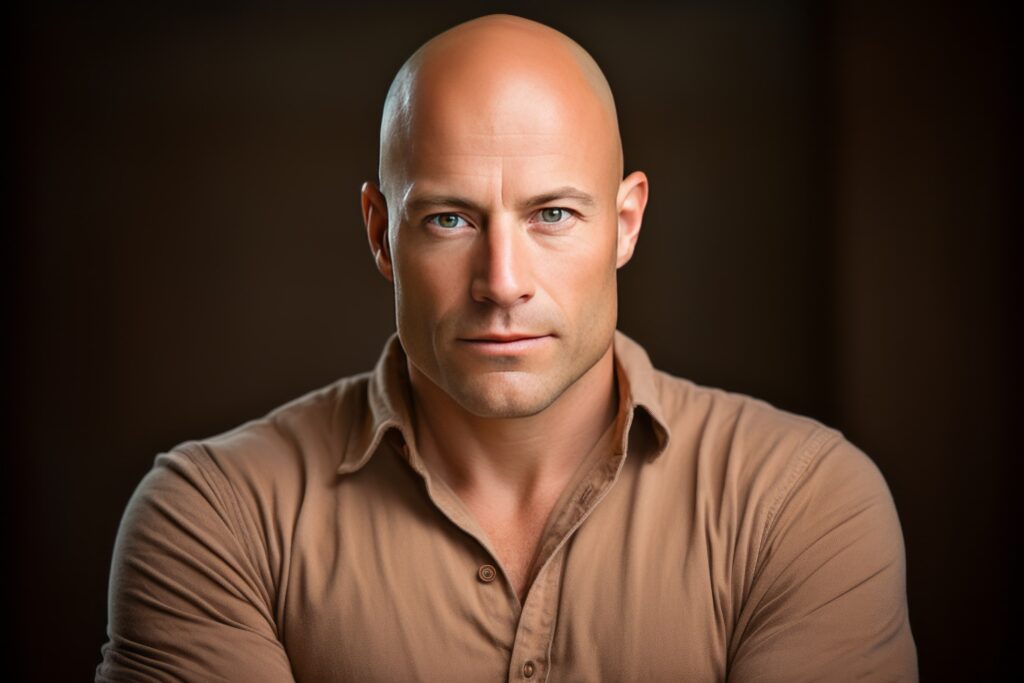There are a multitude of factors behind hair loss. Different hormones, conditions, deficiencies, supplements, etc., can lead to hair loss. But does creatine cause hair loss? There is some speculation that creatine may cause hair loss. However, there isn’t any conclusive research to support this theory.
In this article, we will discuss creatine hair loss, the side effects of creatine supplements, and how to prevent supplement-induced hair loss.
What is creatine used for?
Creatine is an organic substance. It is produced naturally in our body. We also consume creatine through meat and fish. Creatine can help create energy in muscles during high-volume exercise. Creatine can increase muscle mass, improve strength, and boost performance.
That is why it is a popular choice among sportspeople and athletes. Creatine can also help with muscle cramps, multiple sclerosis, congestive health failure, depression, and neuromuscular conditions.
But, could one of the side effects of creatine be hair loss?
How Does Creatine Work?

Creatine is a nitrogenous organic acid formed naturally from amino acids in the kidneys, pancreas, and liver. It is primarily stored in muscles and facilitates rapid energy production. Creatine increases phosphocreatine storage.
The additional phosphocreatine can produce ATP during high-intensity workouts. ATP production helps our muscles work harder and can improve athletic performance.
Creatine also has buffering abilities. It buffers hydrogen ions and reduces muscle acidity. The substance can pull water into our muscle cells. It increases the cell volume and promotes muscle growth.
In some cases, creatine can be effective against muscle disorders. It can also increase endurance and strength in cardiac patients. There is evidence to suggest that it may help improve neurological symptoms.
What Are the Side Effects of Creatine and Does it Cause Hair Loss?
Most people report positive experiences from creatine consumption. However, there are some potential side effects:
- Muscle pain
- Dizziness
- Vomiting
- Weight gain
- Gastrointestinal problems
- Headaches
- Nausea
As you can see, hair loss is not one of the most common side effects of creatine. Still, it doesn’t mean that this creatine cannot in any case cause hair loss.
You can follow some general tips to avoid creatine side effects:
- Start with a lower dose. You should see how your body adjusts to the supplement before taking the total dosage.
- Creatine increases your need for water. So, it would help if you hydrated continuously throughout the day.
- If you have other health concerns, consult with your healthcare provider. Creatine might not be beneficial for specific medical conditions.
Creatine, DHT levels and Hair Loss

Some studies suggest creatine supplements increase DHT levels. DHT is a testosterone-derived sex hormone. It is a potent androgen and may cause hair follicles to shrink.
A study was conducted on college aged rugby players for three weeks in 2009. It calculated their DHT to testosterone ratio.
A creatine-supplementing player had a 56% increase in DHT levels after just one week. After 14 days, their DHT levels remained at 40% above baseline. The study suggests that creatine increases enzyme 5-alpha reductase activity. It is responsible for testosterone to Dihydrotestosterone (DHT) conversion.
DHT binds to some specific receptors in hair follicles. It is linked to hair loss as it shortens the hair growth cycle, leading to hair loss and balding. An elevated DHT level might lead to male pattern baldness.
However, this study only suggests a possible link. There have yet to be any other studies with similar results.
Can creatine cause hair loss?
There isn’t enough scientific evidence to suggest creatine hair loss is substantial. The above study argues that creatine leads to hair loss. However, the study has several limitations:
- Small 20-participant sample size
- The DHT to testosterone ratio was within normal clinical limits
- Free testosterone was not measures
- The participants had no increase in their total testosterone
Since this study’s publication, many others have tried replicating its findings. However, twelve other studies found no significant association between creatinine and DHT. Only two studies found tiny increases, but even those increases were within normal limits. The scientific literature on the topic does not support a link between creatine supplementation and hair loss.
Is Hair Loss from Creatine Permanent?

Currently, no scientific evidence suggests that creatine hair loss is permanent. Creatine hair thinning usually occurs within two months of taking the supplement. You can stop taking it if you are experiencing creatine hair shedding. The hair loss is not permanent, and the lost hair will grow back.
In rare cases, creatine might work as a catalyst for another genetic condition—for example, Androgenic alopecia. You would need to undergo hair loss treatments for creatine-induced medical conditions for new hair growth.
How to Prevent Hair Loss from Creatine?
If you suspect you are suffering from hair loss due to creatine, keep reading to find prevention measures.
Medication Management
If you believe your hair loss is due to creatine’s side effects, please consult your provider. The effects of creatine supplementation are many and unknown. We still need to learn how creatine interacts with over-the-counter or prescription drugs. Make sure you are not taking any of the following medicines:
- Diuretics
- Steroids
- Tagamet
- Probenecid
These drugs may interact poorly with creatine and cause hair loss.
Topical Treatments
2% or 5% minoxidil can stimulate new hair growth. It helps in boosting the regeneration of hair follicles.
Mesotherapy
Dermarolling helps to stimulate the hair follicles. It can enhance the absorption of hair serums and other topical treatments. You can combine dermarolling with minoxidil for more significant results.
Red Light Therapy
Red light therapy uses low-level laser lights. It increases blood flow to the scalp and stimulates hair follicle production.
Hair Transplant
Hair transplants are one of the most popular options for treatment-resistant hair loss. The Cosmedica Clinic has a 98% success rate in FUE hair transplants. They employ the most modern methods available at affordable rates for everyone worldwide. You can contact Cosmedica to discuss all kinds of hair loss treatments.
Get In Touch
Cosmedica Clinic specializes in affordable hair loss treatments. If you are unsure about creatine hair loss, contact the Cosmedica doctors. This Turkey hair clinic offers both nonsurgical and surgical hair treatments like Micro Sapphire FUE.
You can visit their before and after gallery to understand their advanced work in this field. Cosmedica ensures your comfort throughout the entire process and delivers expert guidance.
